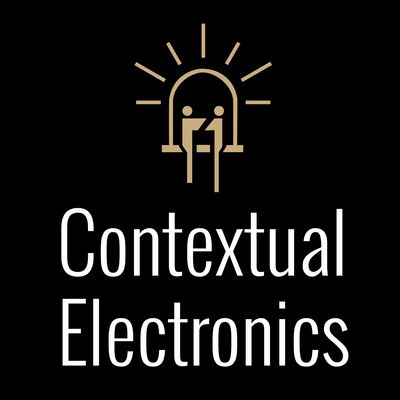Contextual Electronics highlights stories of people using electronics to solve their problems. Listeners will hear how to use electronics in their own projects, by learning about new technologies and techniques. Tune in each week to hear a different guest and how they are using electronics to solve a problem in their life. Contextual Electronics is also an online education program. Started in 2014, CE pairs theory and practice for learning electronics. In 2020, we started the podcast to highlight stories of using electronics in real world contexts.
https://contextualelectronics.com/category/podcast
CEP009 – Meta Learning Electronics with Mike Cheich and Phil FitzGerald
- About the guests/host
- Mike Cheich runs Programming Electronics academy. He has also been on Chris’s other podcast in the past.
- Phil FitzGerald is an educational coach via The Compelling Message
- Chris teaches at Contextual Electronics
- Discussion topics
- Teaching how to make a sandwich
- Is the knowledge in reach and is it relevant?
- Most people that are in Programming Electronics are hardware hobbyists who want to get into programming, usually through Arduino
- It can be intimidating learning electronics because of the breadth of knowledge required
- Phil-ism: Accreditation, certification, celebration.
- Self evaluation matters at the beginning of education
- SME = Subject Matter Expert
- Analogy of creating a map within a city (mapping out London)
- Selling people on the end point of a learning journey
- Learners normally don’t care as much about the specifics of the journey
- After the fact, learners will rose c0lor the specifics of how they got to the point they’re at
- DITLO = Day in the life of
- Chris struggles with how traditional education was teaching electronics
- Mike likes finding the guiding principle within the electronics universe
- Two tracks – thinking (theory) and doing (practice)
- Designing your own 5 year map of curriculum
- Phil-ism: You can’t show it if you don’t know it
- Extending your knowledge of how maps work by being able to create a map in a new city
- Creating lists of things to do, or not to do
- Mike is learning how to 3D printing, which was a new learning journey
- Facing failure and understanding what you should do when that happens
- Drawing your map so you understand what you do and don’t know
- Keeping notes is so you reinforce your own knowledge. In Phil’s example, this might take the form of a map. Phil explains in more detail in the video below:
- The Dunning Kruger Effect
- Make It Stick by Peter Brown
- Growth Mindset vs Fixed Mindset
- Removing barriers to learning when a learner experiences a problem (QR Code example)
- Sleeping on a problem (or stepping away from a problem)
- Accreditation is someone verifying you know what you claim to know
- “What comes before that” is an important question when mapping out the steps required to learn something
- Maps start as post-it notes
- Creating analogies
- Breaking down individual elements of the learning process and relating it back to that analogy
- How do you quantify “show it to know it”?
- Chris is a proponent of “Build Logs” (which is also a section on the CE Forum)
- What do you notice in the thing you want to build?
- Thinking about the steps that indicate you’re about to get to the next step? (ie. Which stop comes before the stop you’re going to get off at on the train)
- Dewey Decimal System
- Sometimes courses try to constrain the possible paths of research, as that can get overwhelming
- The downside to learning in the modern day is how many sources of distraction there are (ie. phones)
- Guided path examples
- Implementation Patterns by Kent Beck
- Learning something well enough to teach is holding yourself to a higher standard
- Check out Phil’s site The Compelling Message and check out his book!
- Mike teaches electronics on Programming Electronics Academy
- Please follow us on social media:
- @ContextualElec on Twitter
- Contextual Electronics on Facebook
- Contextual Electronics on LinkedIn
- @Chris_Gammell on Twitter
- Please consider leaving us a review
- iTunes page for subscribing and reviewing
